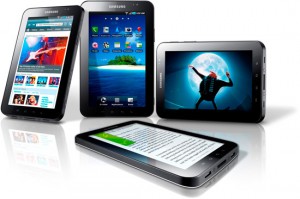 Tablets will become most users’ primary computing device within the next four years, Forrester Research analyst Frank Gillett has said.
Tablets will become most users’ primary computing device within the next four years, Forrester Research analyst Frank Gillett has said.
Gillett yesterday published a forecast predicting 375 million tablets will sell globally in 2016. That prediction is nearly double a recent forecast by IDC, which envisioned 200 million tablets sold globally in 2016.
One big difference in the size of Gillett’s prediction is how central tablets will figure in many settings, including the workplace, where tablets are useful for sharing and working in groups. “There’s no barrier of a vertical screen, no distracting keyboard clatter and it just feels natural to pass over a tablet, like a piece of paper, compared to spinning around a laptop,” Gillett wrote in his blog.
“Tablets will become the preferred, primary device for millions of people around the world,” he said.
In 2016, one-third of the 375 million tablets sold will go to business users, he said. By comparison, tablet sales totalled about 56 million in 2011, Forrester said.
Also in 2016, the total installed base of tablets sold by then is expected to reach 760 million.
Gillett defines a tablet as having touchscreen capability, weighing less than 1.75 pounds with a 7-in. to 14-in. screen, an eight-hour battery life and always-on operation.
Even while tablet sales grow, they will “only partially cannibalise PCs,” Gillett wrote. “Eventually, tablets will slow laptop sales, but increase sales of desktop PCs.” Many information workers will still need conventional PCs for creative work that requires big processing power or a large display, he said.
Gillett also wrote a 17-page report with other Forrester analysts for clients that described ways tablets and smartphones will fit into a new form of PC. Called “frames,” these new PCs will essentially be displays that have sensors, processing power and wireless docking to work with handheld devices of all types.
Frames will be stationed in meeting rooms, coffee shops and more, Forrester said. Tablets used with frames will substitute for laptops in significant volume, the report said.
Tablets will become the central device in the personal computing realm because they are easy to use and share; portable; have all-day battery life; and are flexible for both content consumption and creative and productive work, the Forrester report said.





